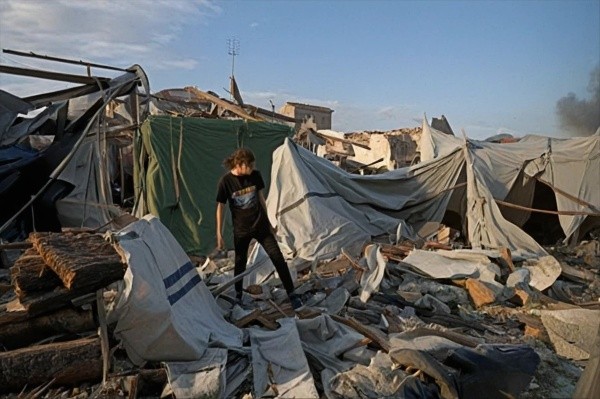Iran’s Plan to Strike Back Against the U.S.
Iran’s Military Preparations Following U.S. Attacks
Loading...

The move comes amid growing frustration with lack of progress on a ceasefire deal between Israel and Hamas.
Lack of Progress Leads to Suspension
Qatar has officially suspended its mediation efforts between Hamas and Israel, a decision announced by officials on Saturday. This move comes in response to increasing frustration over the stagnation in negotiations for a ceasefire deal between the two parties. A diplomatic source indicated that Qatar can resume its mediation role if both sides demonstrate a **serious political willingness** to engage in constructive discussions.
Implications of the Suspension
The suspension of mediation efforts has significant implications for the ongoing conflict. Following the announcement, both Israel and Hamas, along with the United States, were informed of Qatar's decision. The source noted that the **Hamas political office in Qatar no longer serves its purpose**, highlighting the diminishing role of Qatar in facilitating dialogue. A senior Hamas official acknowledged awareness of Qatar's decision but stated that they had not been instructed to leave the country.
In Washington, a U.S. official revealed that the Biden administration had previously communicated to Qatar that the continued presence of the Hamas office in Doha was no longer beneficial. The U.S. urged Qatar to expel the Hamas delegation after the group rejected multiple proposals for hostage releases. This stance reflects a broader sentiment among U.S. allies regarding Hamas's actions and their implications for regional stability.
Ongoing Violence and Humanitarian Concerns
The announcement from Qatar comes against a backdrop of escalating violence in Gaza and Lebanon. The Israel-Hamas conflict shows no signs of abating, with Israeli military operations continuing to target militant infrastructure. Recent airstrikes in Gaza resulted in the deaths of at least 16 individuals, including women and children, as reported by Palestinian medical officials. One particularly devastating strike hit a school-turned-shelter in Gaza City, killing at least six people, including local journalists and a pregnant woman.
In addition to the casualties, the humanitarian situation in Gaza remains dire. The Israeli military's humanitarian aid body, COGAT, reported that eleven aid trucks carrying essential supplies reached northern Gaza for the first time in weeks. This delivery comes just before a U.S. deadline for Israel to improve aid access across the region, emphasizing the international community's concern over the humanitarian crisis.
Future of Mediation Efforts
Despite the current suspension, analysts suggest that Qatar is unlikely to withdraw completely from its mediation role. Qatar's unique position as a host for Hamas's political leaders and its alliance with the U.S. make it a crucial player in any potential negotiations. The possibility of resuming mediation efforts hinges on the willingness of both Hamas and Israel to engage in good-faith negotiations.
As the situation evolves, the international community will be closely monitoring developments in Gaza and the broader region. The hope remains that diplomatic efforts can be revived to bring about a ceasefire and alleviate the suffering of those affected by the ongoing conflict.
Editor
Iran’s Military Preparations Following U.S. Attacks
Troops remain in five strategic locations, raising fears of renewed tensions and long-term occupation.
Opposition forces have taken control of the capital after a significant offensive. Here is how it unravelled.
